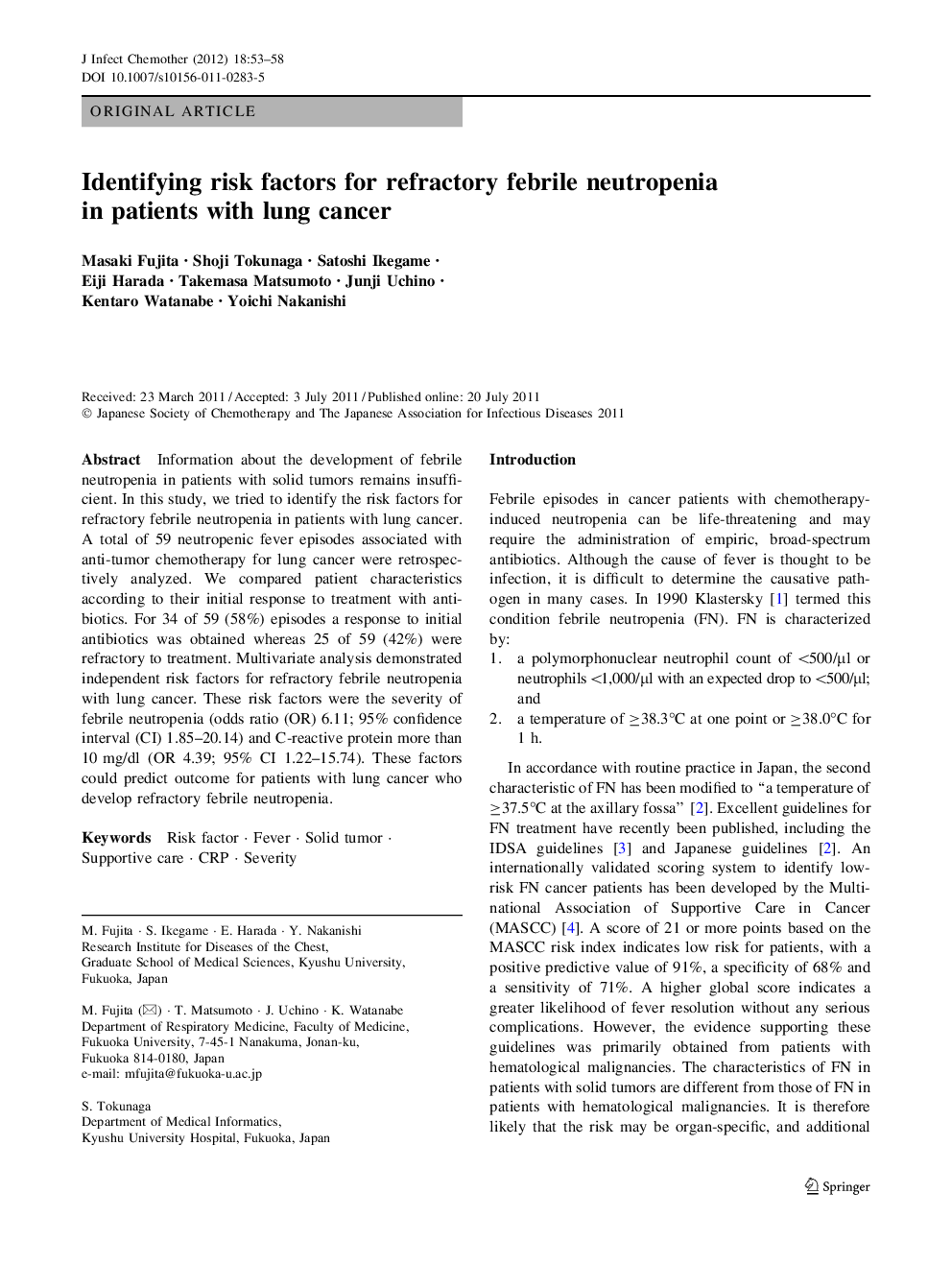| Article ID | Journal | Published Year | Pages | File Type |
|---|---|---|---|---|
| 6124228 | Journal of Infection and Chemotherapy | 2012 | 6 Pages |
Abstract
Information about the development of febrile neutropenia in patients with solid tumors remains insufficient. In this study, we tried to identify the risk factors for refractory febrile neutropenia in patients with lung cancer. A total of 59 neutropenic fever episodes associated with anti-tumor chemotherapy for lung cancer were retrospectively analyzed. We compared patient characteristics according to their initial response to treatment with antibiotics. For 34 of 59 (58%) episodes a response to initial antibiotics was obtained whereas 25 of 59 (42%) were refractory to treatment. Multivariate analysis demonstrated independent risk factors for refractory febrile neutropenia with lung cancer. These risk factors were the severity of febrile neutropenia (odds ratio (OR) 6.11; 95% confidence interval (CI) 1.85-20.14) and C-reactive protein more than 10Â mg/dl (OR 4.39; 95% CI 1.22-15.74). These factors could predict outcome for patients with lung cancer who develop refractory febrile neutropenia.
Related Topics
Life Sciences
Immunology and Microbiology
Applied Microbiology and Biotechnology
Authors
Masaki Fujita, Satoshi Ikegame, Eiji Harada, Yoichi Nakanishi, Masaki Fujita, Matsumoto Takemasa, Uchino Junji, Watanabe Kentaro, Tokunaga Shoji,
